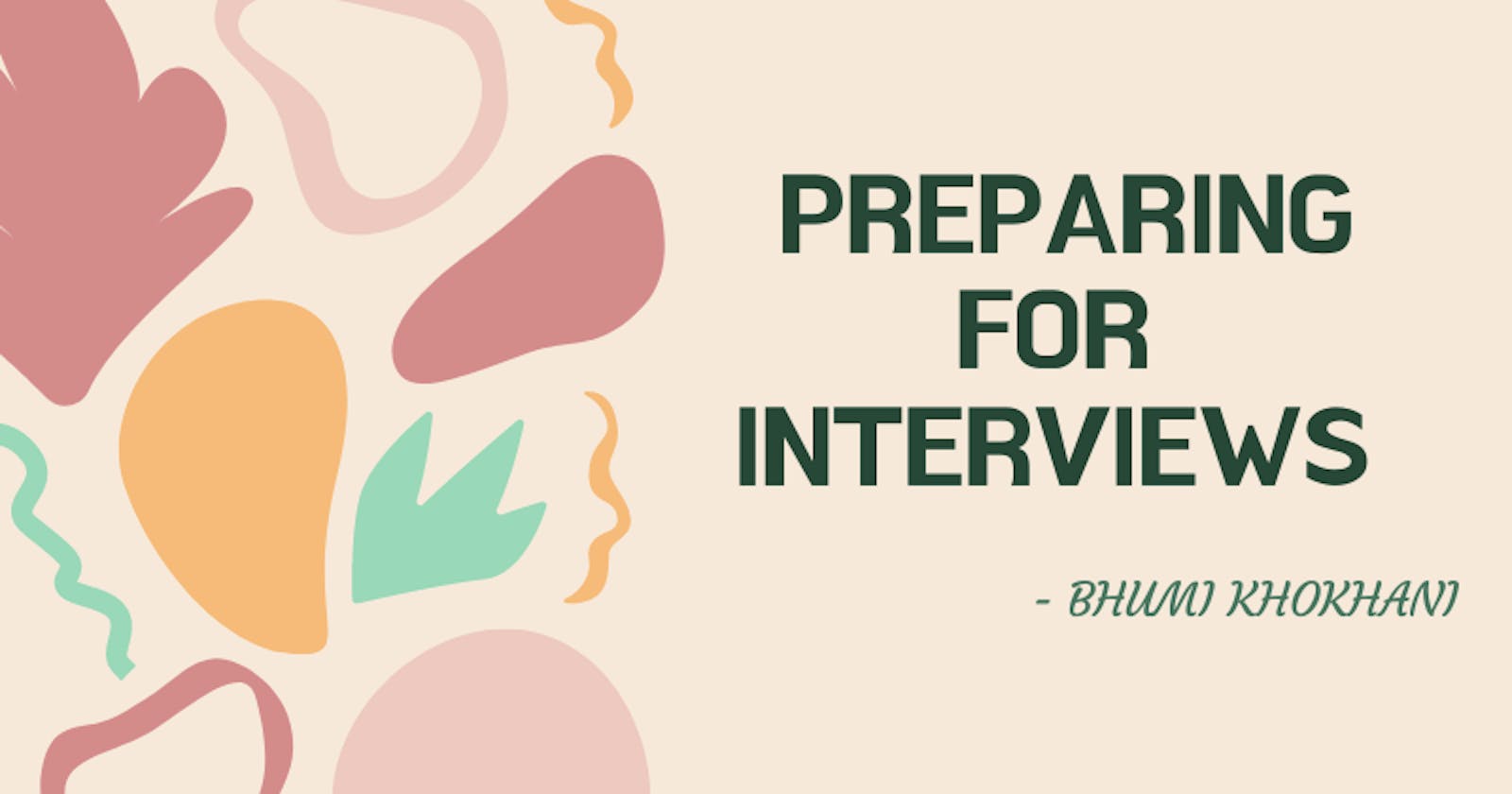Introduction
Since the beginning of this pandemic, it's been really hard and confusing to figure out how and where to begin with. We are uncertain of what tomorrow holds because of the drastic changes in the work-life culture. Now, the success of job interview will depend on two things, your luck or how you prepare for it. Or maybe both. Not always is it luck that we can rely on. Because from what I believe, it's primarily always the hard-work that gets you through this. So, let's get into knowing what's basically required to prepare for an interview.

1. Building a Network
- Know which company are you aiming for, from your student-life itself.
- Discover different aspects of their company.
- Start connecting with the recruiters and employees on LinkedIn.
- Ask questions about the company.
- Learn their recruitment process.
- Having an LOR from a senior employee is an added advantage.
2. The Job Description
- While, applying for a job, read the job description thoroughly.
- Check over the eligibility criterias.
- Know what the recruiter expects from you.
- Check over the keywords and phrases the employer mentions.
- Start aligning your skills and qualifications with the given JD.
3. Building the Resume
- Your resume is your first impression, make sure it stands out.
- Don't use a resume without altering it according to the JD.
- Let your resume be a one-page document, with a descent readable template.
- If you have multiple skills and experiences, pointing out the ones meeting the JD at the top highlights it further.
- Make sure you're mailing or submitting the resume in a pdf format only.
- For offline interviews, it's better to carry a few hard copies of your resume, to avoid the risk of interviewers not being able to access the mailed document.
4. Research research and research
- Here, the network that you built helps.
- If you haven't, you can still search online about the company/organization.
- Their aim and motto.
- Learn about the work culture.
- Know more about the role you are applying for, and their expectations.
- Learn about the products/ services they offer.
- It's important to also know about their partner companies.
- This will reflect the seriousness and dedication you have to work in their company.
5. Mock interviews
- Even if you are a fresher or experienced employee, it's natural to feel anxious before the interviews.
- Mock interviews serves great by giving you a practice and real-world experience.
- These will also help you boost up your confidence.
- You can analyse it by recording it.
6. Getting ready for the questions
- If you are working in a technical field, you need to have a grip on the languages you are practicing on.
- There are various web-sites you can practice on to have a strong hold on the basics.
- Tell me about yourself : Starting with your name, start describing about yourself and your family. (just the basic). Continue with your qualities, skills and experiences. Adding to it, tell about your goals. End it by telling what you love to do in your free-time, i.e. your hobbies.
- Why hire you? : Talk short about the company's motive and aim, and how you match their criterion. Tell them how their JD requirements match your skills. Showcase how you stand out from others and how you can make the company grow further.
- Why this company? : Get points from your research. Tell them the positive aspects of the company that you have learnt from the former employers that interests you to work. May it be technologies, projects or even the work culture. Again, start aligning your goals and skills to the companies. This works well as a highlight.
- Strengths and Weakness : Starting with strengths, showcasing your skills as your strengths works best. This will again reflect how the requirements in your JD are met. You can add-on by including the values you have.
About the weakness, many say "showcase your weakness as strengths". But let's face it. No one is perfect, we all have some weaknesses. And its important to stay honest about it. It's okay to admit the weakness you've, and also add-on how you're working over to solve it. This very well portrays the person you are. - Any questions? : This one is important. If you're genuinely looking at working in the company, you must have been wondering with questions popping in your head about the working, experience or the culture etc. This is the best opportunity to ask those questions. This will let you know more about the company and also let the recruiter know how interested are you in working in the company.
Some small tips
- Be honest.
- Stay kind and gentle.
- Try not to panic. Breathe.
- Talk positively and respectfully.
- If you don't know the answer to a certain question, admit that you don't.
- If you need time to think for a certain question, ask for some time.
- Know that even the interviewer was once a candidate, he knows what it is to feel nervous during the interviews. So, it's ok. Stay calm.
- Remember, just like any other skill, cracking interview is also a skill which takes time and tries. So, it's alright if you didn't get the first one. Keep trying, you will earn your success.
Wrapping Up
Hope this article helps preparing for your next interview. All the very best👍🏻
Feel free to put up any questions if you have/had. I will try my best to answer them.
Also, you can leave you suggestions in the comment section and give a reaction if you enjoyed reading it 💖
Feel free to connect with me on LinkedIn | Twitter
If you like my work, you can extend your support by buying me a ☕. Thank you!


